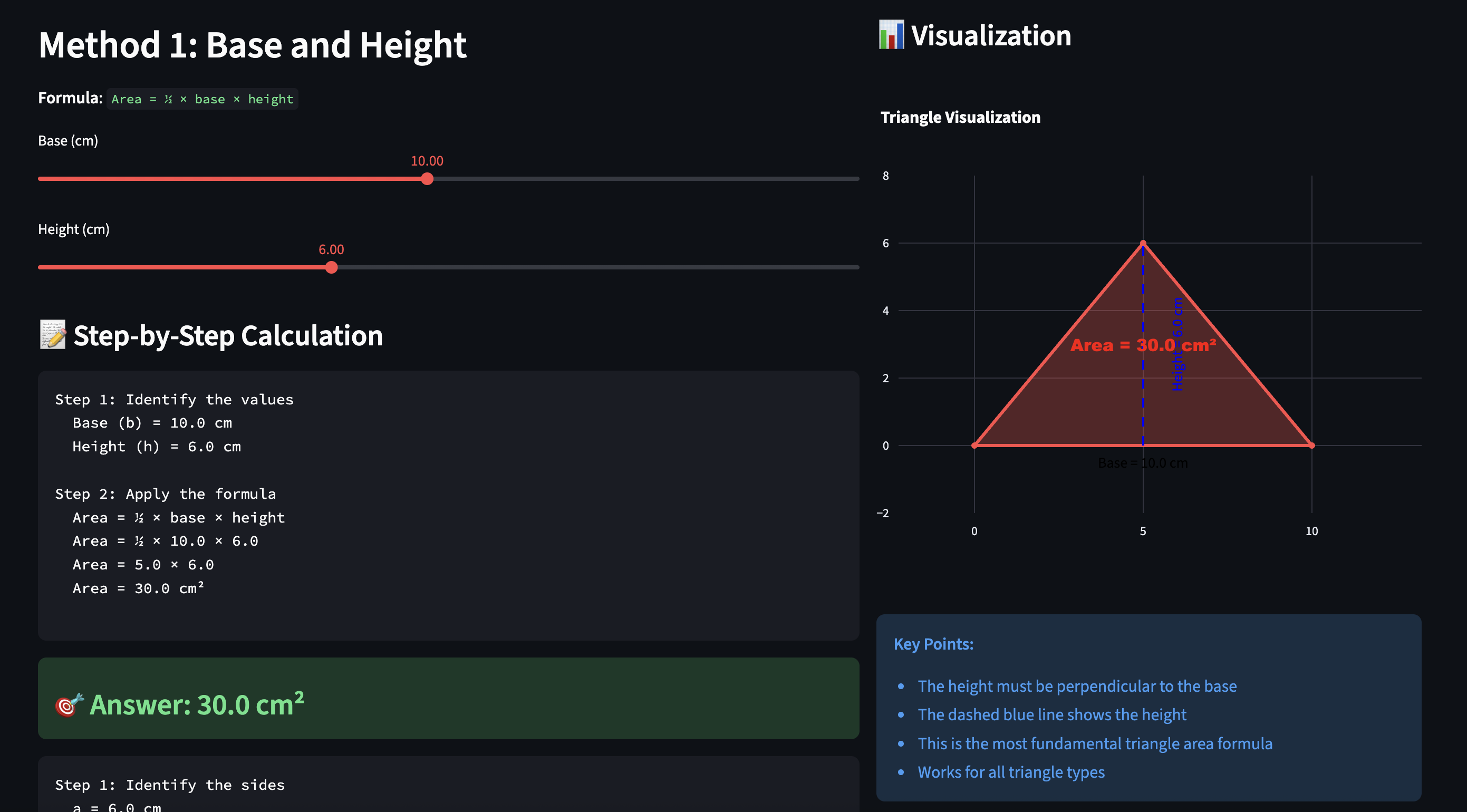
Building the Future of Learning - EU Code Week 2024
We're living through a fundamental shift in how knowledge is created, accessed, and shared. Artificial Intelligence isn't simply another educational technology to be bolted onto existing systems—it represents a paradigm shift in how we approach learning itself.
During EU Code Week, I had the privilege of leading an interactive workshop that put this transformation into practice. The challenge: guide participants with zero technical background through building a complete, functional website and deploying it live to the internet—all within a single session.
🚀 Explore the Workshop Project
Want to try building the triangle calculator yourself? All the code and materials from the workshop are freely available:
View on GitHub →
More Than a Coding Exercise
This wasn't just about building a website. It was a live demonstration of a deeper truth: the barriers to creation are collapsing. What once required years of specialized training can now be accomplished in an afternoon with the right guidance—both human and artificial.
The session explored three interconnected themes:
Reimagining Educational Practice
AI tools are fundamentally changing the teaching and learning landscape. We're moving from one-size-fits-all instruction toward genuinely personalized guidance that adapts to each learner's pace, style, and needs. The workshop demonstrated this firsthand as participants worked alongside AI systems that explained concepts, debugged issues, and offered contextual help in real-time.
Amplifying Impact with Limited Resources
One of the most powerful aspects of AI in education is its democratizing potential. Schools, educators, and learners with limited resources can now access capabilities that were previously available only to well-funded institutions. During the session, participants witnessed how AI can unlock both productivity and creativity, transforming constraints into opportunities.
AI as Learning Partner, Not Just Tool
Perhaps the most distinctive element of the workshop was experiencing AI not as a passive utility but as an active collaborator. The website we built together incorporated AI-powered knowledge management, creating an intelligent system capable of explaining concepts, answering questions, and guiding users through mathematical problems—all generated during the session itself.
Participants watched as AI agents actively taught and explained in real-time, illustrating new models of human-machine collaboration. This wasn't science fiction or a carefully staged demo—it was a practical application of technology available today.
From Inspiration to Action
The goal wasn't just to inspire participants but to equip them with practical insights they could immediately apply. By the end of the session, everyone left with:
- A functioning website they built and deployed themselves
- Concrete understanding of how AI can enhance their educational or professional practice
- Confidence that the technology gap isn't as wide as it appears
- A new mental model for thinking about AI as a collaborative partner
Resources for Getting Started
Inspired to explore AI and coding with your students? Here are some excellent resources to get started:
💳 Free Azure Credits for Students
Students can get USD100 in free Azure credits to build cloud applications, deploy AI models, and experiment with cutting-edge technology—no credit card required.
Get your free Azure credits →🎓 Fun AI Activities for Students
A comprehensive guide to engaging, hands-on AI activities that make machine learning concepts accessible and exciting for learners of all ages.
Explore AI activities →🎨 Google's Quick, Draw!
Experience neural networks firsthand in this fun, interactive game where an AI tries to guess what you're drawing. A perfect introduction to how machines learn to recognize patterns.
Play Quick, Draw! →Looking Forward
The workshop, co-organized by All Digital and Avanade, was a microcosm of the broader transformation happening across education globally. We're moving from an era where technology supports education to one where intelligent systems actively participate in the learning process.
The question isn't whether AI will transform education—it already is. The question is how we, as educators, learners, and citizens, will shape that transformation to serve human flourishing.
For those interested in exploring the technical foundations of what we built, the workshop materials and code are available on GitHub. The example demonstrates practical applications of AI in educational contexts, from interactive geometry teaching to real-time mathematical problem-solving.
The future of education isn't about replacing teachers with machines—it's about empowering every educator and learner with collaborative intelligence that amplifies human potential. That future isn't coming. It's already here.